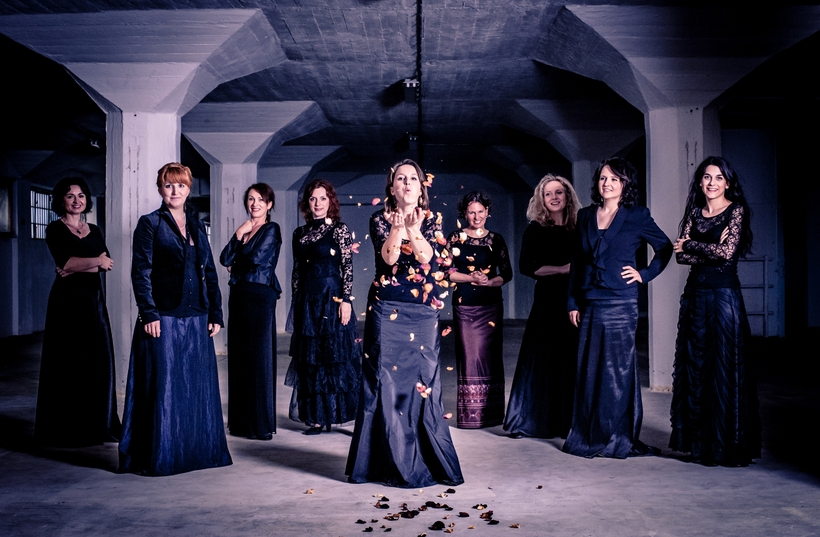Prague’s all-female Tiburtine Ensemble takes its name from the Tiburtine Sibyl of Roman antiquity, revered in the Middle Ages for prophecies anticipating the reign of Christ. And the composer with whom their voices are associated above all others is the sainted 11th-century abbess, polymath, and visionary Hildegard von Bingen. As the singers spell out in their mission statement, “The parallels between the pagan sibyl and the Christian prophetess are obvious: their noble origins, their preaching expeditions, the inquiries from persons in positions of power, and their ability to see all the way to the end of the world, something which was denied to men—however learned they might be.”
On May 7, the early-music series Music Before 1800 presents the Tiburtine Ensemble at Corpus Christi Catholic Church, Morningside Heights, Manhattan, in “Celestial Harmony: Music for the Heavenly Court by Hildegard von Bingen.” On May 14, the concert premieres online for a period of two weeks.

Like the Mesopotamian poet, princess, and priestess of the moon Enheduanna, who flourished in Ur some four thousand years ago and was the subject of the Morgan Library’s recent landmark show “She Who Wrote,” Hildegard is a ready-made icon for our age. Enheduanna stands as history’s first writer known to posterity by name. Hildegard, whose accomplishments also extend to medicine and the natural sciences, is known in musical circles as the preeminent composer of sacred monophony—chants sung either by a single voice or by multiple voices in unison without harmony or counterpoint. More of Hildegard’s music has come down to us than from any other medieval composer. Being a prolific writer in many media, even a kind of liturgical protodrama (the often-cited, seldom performed Ordo Virtutum), she distinguished herself also by supplying her own texts.
Recordings confirm the Tiburtina Ensemble’s sterling reputation for crystalline tone and pinpoint intonation. In striking contrast to the gritty midnight drone of monkish Gregorian chant, Hildegard’s sunny song falls on modern ears as melody, simple yet supple, quiet yet joyous. In a world of discord, she leads us by still waters, regardless of our faith.
The Tiburtina Ensemble at Corpus Christi Church, Morningside Heights, is available for streaming on the Manhattan Music Before 1800 Web site from May 14 to 28
Matthew Gurewitsch writes about opera and classical music for AIR MAIL.He lives in Hawaii

